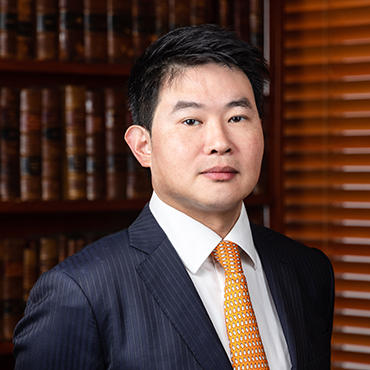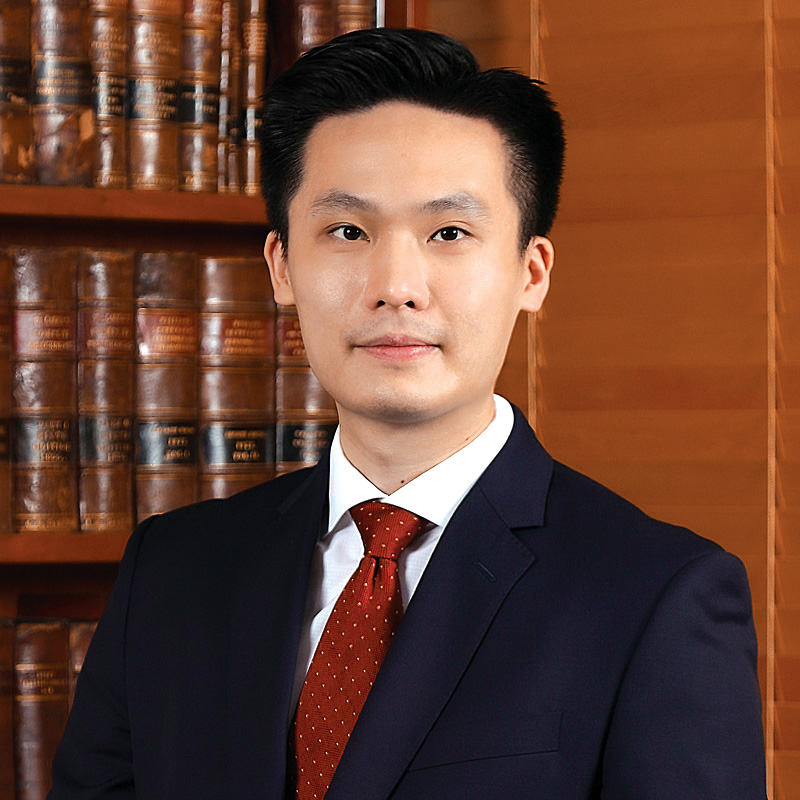HKSAR v Chow Hang Tung (鄒幸彤) & Ors [2024] 4 HKC 46, [2024] HKCFI 553 (Philip Dykes SC, Albert NB Wong, Esmond Wong)
Philip Dykes SC, Albert NB Wong and Esmond Wong represented the appellants in HKSAR v Chow Hang Tung (鄒幸彤) & Ors [2024] 4 HKC 46, [2024] HKCFI 553.
The appellants were office bearers of the Hong Kong Alliance in Support of Patriotic Democratic Movements of China (HKA). Section 3(1) of Sch 5 to the Implementation Rules for Art 43 of the Law of the People’s Republic of China on Safeguarding National Security in the Hong Kong Special Administrative Region (NSL) provided that if the Commissioner of Police reasonably believed that it was necessary to issue the requirement for the prevention and investigation of an offence endangering national security, the Commissioner may, with the approval of the Secretary for Security, by written notice served on a foreign agent or Taiwan agent, require the agent to provide the Commissioner with certain information within the specified period. Pursuant to the said section, the Commissioner issued and served Notices on the appellants and others, requiring for some specified information in writing with supporting documents. Failing to comply with the Notices, the appellants were jointly charged with one count of ‘failing to comply with notice to provide information’, contrary to s 3(3)(b) of Sch 5. A magistrate ruled, as a matter of law, that the defence was not debarred from challenging the legality of the Notices given that there was no existing mechanism for licensing nor registration of foreign agents, and the norm was all entities were without obligation to disclose their composition, activities or means unless by stipulation. He also ruled that the prosecution needed not prove the subject organization was a foreign agent as a matter of fact. The appellants were convicted after trial. Each of them was sentenced to 4½ months’ imprisonment. The appellants appealed against conviction and sentence.
Held, dismissing the appeals, that:
- (1) Upon the true construction of s 3(3) of Sch 5 of the Implementation Rules, the provision merely required a notice which appeared to be valid on its face and had not been quashed by juridical review. The legality of the Notices was not an element of the offence that was open to challenge by way of a defence in the criminal proceedings. The Notices were specifically directed to the appellants who had clear and ample opportunity to challenge their legality. The appellants were well aware of the consequence that they might be prosecuted for non-compliance with the requirement. They may always apply for judicial review against the Notices. This was not the case that the appellants had had no opportunity to challenge the Notices until they were prosecuted. Secondly, the Implementation Rules were intended to provide an effective administrative procedure to facilitate implementation of the NSL, in particular Art 43(5). As such, the measures under Sch 5 must be responsive and efficient. To put Art 43 into effect, the clear intent of the legislative body was to confer upon the Commissioner of Police wide powers to investigate into the offences endangering national security. In particular, in the case of territorial investigation, such powers must be given a wide ambit so as to give full use and effect to the same for the purposes of resolutely safeguarding national security and opposing external interference. It could not possibly be the legislative intent to have the underlying merits and/or information of the ongoing investigation requiring the Commissioner to issue the Notices be examined in a criminal trial. Finally, taking into account the nature of the information in support of the Notices and the likelihood of confidential or privileged materials involved, it could not possibly be the legislative intent to have the validity of the Notices determined by way of collateral challenges in a busy magistrate’s court. It would be more appropriate to have the matter dealt with before the superior court by way of judicial review. HKSAR v Chow Hang Tung [2024] 3 HKC 44 ; (2024) 27 HKCFAR 71 ; [2024] HKCFA 2 followed (paras 18-23).
- (2) The organization being a ‘foreign agent’ was not an element of the offence that had to be proved by the prosecution to the requisite standard. One could not lose sight of the basic fact that the office was one of failing to comply with the Notice as required. Schedule 5 was a specific scheme directed against ‘collusion with a foreign country or with external elements to endanger national security in relation to the HKSAR’, it could not be the legislative intent to impose any requirement of criminal standard before the police could be allowed to take effective measures stipulated in Sch 5. To rule otherwise would be contrary to all the intent and purpose of the NSL. Such view was reinforced by the similar provision in s 2 of Sch 5 which related to the requirement of similar information from a foreign political organization or Taiwan political organization by way of a Notice. Obviously, it was unreasonable to require the Commissioner to be able to prove as a fact to the criminal standard that the said organization was a foreign or Taiwan political organization before a Notice could be issued. Likewise, the same rationale should apply concerning the issuance of notice under s 3 (paras 24-30).
- (3) The elements of the offence under s 3(3)(b) of Sch 5 to the Implementation Rules were: (i) the Notices were valid on its face; (ii) the Notices were duly served on the appellants; (iii) the appellants were office-bearers or person managing or assisting in the management of the HKA in Hong Kong; and (iv) the appellants failed to comply with the Notices without exercising due diligence and the failure was not for reasons beyond their control (para 31).
- (4) Given the ruling that the appellants were precluded from raising a collateral attack on the legality of the Notices, and the ruling that the prosecution needed not prove that the HKA was a foreign agent as an element of the offence, the appellants’ complaints that the prosecution adduced no evaluable evidence to show that the HKA had any form of relationship with any identifiable foreign government or political organization, or it carried on its activities for the benefit of any identifiable foreign government or political organization, could not have any bearing on the safety of the appellants’ convictions (paras 34-36).
- (5) Having read the materials, the Court was satisfied that the redacted parts materials were properly redacted, and their non-disclosure would not have caused any unfairness to the appellants. Further, having checked the matters PW1 declined to answer against the information obtained from the unredacted materials, it was also evident from the transcript that the magistrate had diligently engaged in the proceedings to facilitate the 1st appellant in obtaining the information she sought to obtain provided it was disclosable. The Court was satisfied that the fairness of the trial also was not prejudiced by PW1’s failure to answer questions covered by public interest immunity (paras 39-40).
- (6) The Notices were not ultra vires in seeking, in addition to information, documents. They were not of retrospective effect just because they called for information of events which took place before the promulgation of the NSL (paras 41-42).
- (7) The sentence of 4½ months’ imprisonment imposed on each of the appellants was not wrong in principle or manifestly excessive. Immediate custodial sentence was inevitable for deterrent effect. In the present case the appellants were clearly determined from the outset not to comply with the requirement of the Notices. They were also working in concert in that they held a high-profile press conference and presented the open letter to the Commissioner (paras 47-48).
[The above is excerpted from the headnote to the report in HKC.]




